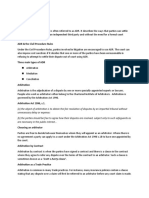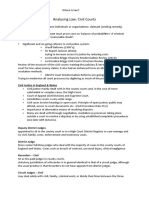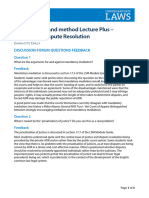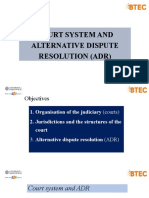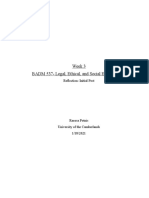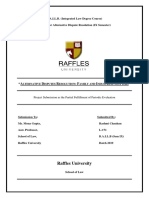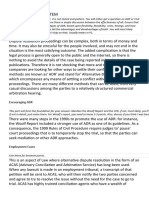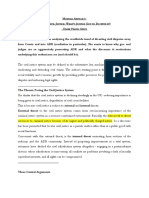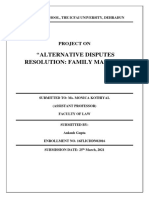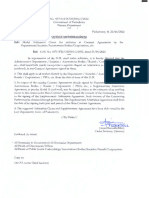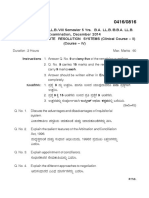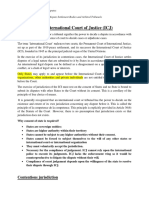0% found this document useful (0 votes)
77 views3 pagesCivil Courts
The document provides guidance on topics for practice questions for Paper 2 on civil courts, ADR, tribunals, and the differences between civil and criminal courts. It includes sample questions on the roles of different courts in civil cases, jurisdiction of courts, appeal processes, alternatives to civil courts like mediation and tribunals, and using small claims processes.
Uploaded by
Sharmeen WaqarCopyright
© © All Rights Reserved
We take content rights seriously. If you suspect this is your content, claim it here.
Available Formats
Download as DOCX, PDF, TXT or read online on Scribd
0% found this document useful (0 votes)
77 views3 pagesCivil Courts
The document provides guidance on topics for practice questions for Paper 2 on civil courts, ADR, tribunals, and the differences between civil and criminal courts. It includes sample questions on the roles of different courts in civil cases, jurisdiction of courts, appeal processes, alternatives to civil courts like mediation and tribunals, and using small claims processes.
Uploaded by
Sharmeen WaqarCopyright
© © All Rights Reserved
We take content rights seriously. If you suspect this is your content, claim it here.
Available Formats
Download as DOCX, PDF, TXT or read online on Scribd
/ 3







